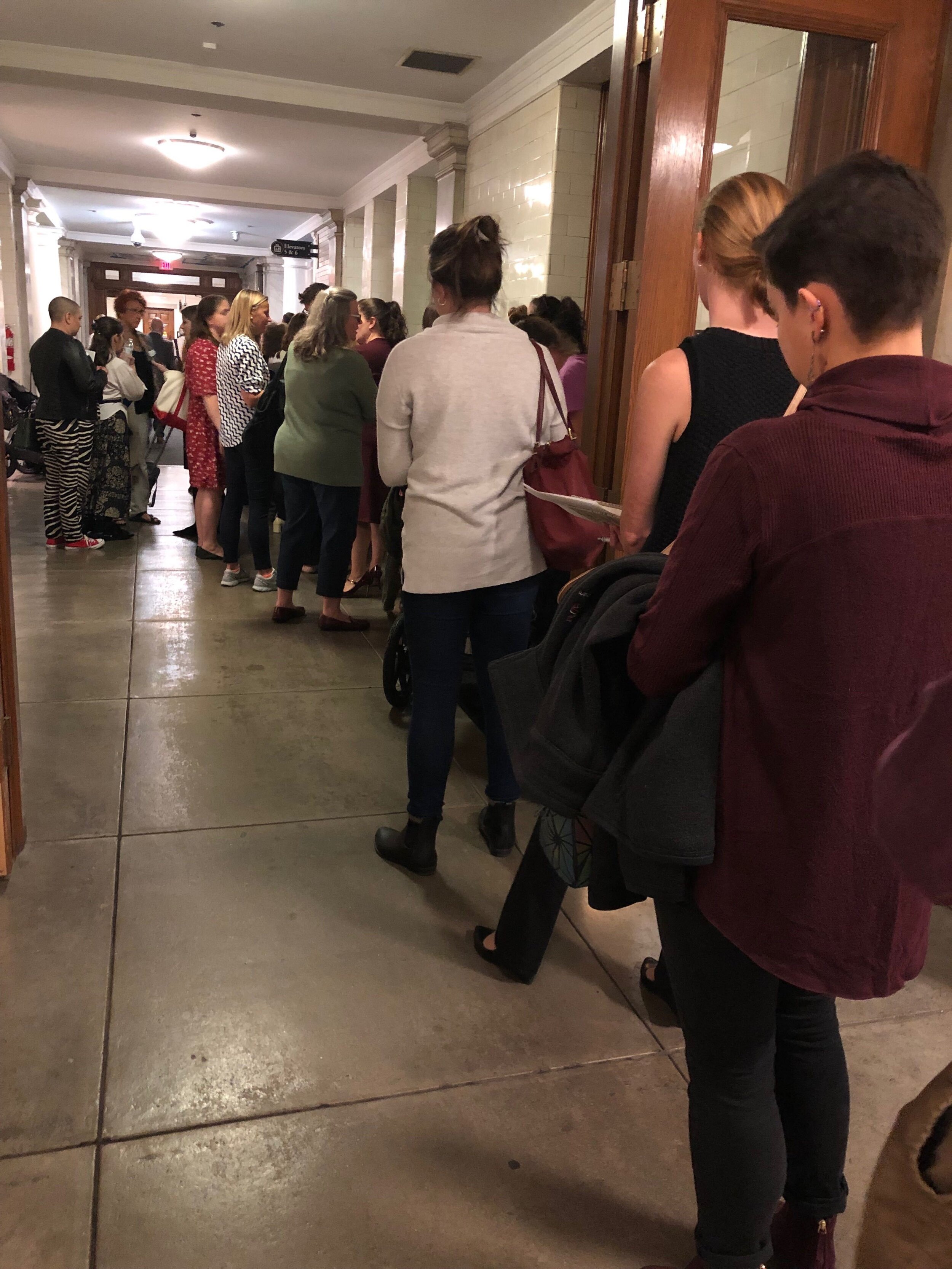Massachusetts Bill H.1934 - A family member's perspective on rare disease
Earlier today, patients, healthcare experts, and policymakers alike made it out to Boston for a hearing on Bill H.1934, which calls for the formation of a rare disease advisory council in Massachusetts state legislature. The Joint Committee on Public Health assembled for the presentation of this bill earlier this afternoon, the flocks of rare disease patients, caregivers, and advocates filling the room to its capacity. This, of course, is an issue near and dear to my heart and to those of countless others, as rare disease finds a way to affect nearly all of us in some tangible way. As was demonstrated at today’s hearing, though, the best way we can gain research funding and raise awareness for these rare diseases is by banding together and petitioning our healthcare policymakers for its support.
Ever since I was a kid (and before that, for that matter -- Paul’s seven years older than me), I remember watching my brother’s struggles with finding the information and the care for his primary immunodeficiency that he needed and deserved. As anyone with a loved one touched by PI will tell you, it’s not an easy road to answers, and in some cases, answers aren’t something we can reasonably expect. Paul was lucky in that he’d found a team of superhero doctors at a young age (not to mention an ever-searching, ever-recording superhero mom), but what was known about PI in, say, 1998 was clearly not on par with the information we have today. And while medical advancement has saved my brother and patients like him in many ways, we’ve still got a ways to go before we can call this fight. And while other patients and caregivers would surely love to participate in this effort (and many have, as we saw by the showing at this afternoon’s hearing), when you’re living with, caring for, or treating a rare disease, it’s hard to find the resources or time.
That’s why Bill H.1934 is so important -- it sets the infrastructure for rare disease research, policy, and treatment to be a sustained effort, rather than a sporadic one. It seems, especially with regards to disease treatment and control, that we tend to focus our public attention on it only during moments of panic or crisis. This makes sense on an intuitive level -- the best way to “fix” illness or disease is to simply prevent it. But what about those patients who were born with life-altering ailments? If prevention is no longer an option, then what is our next step? The Massachusetts Rare Disease Advisory Council would help to keep disease in public awareness not just periodically, but all the time.
So, you must be thinking to yourself by now -- this council’s a great idea, but what would it actually look like? Great thought! I’m here to tell you. Basically, the council will be made up of twenty-seven members, who will be a combination of Massachusetts health policymakers, representatives from academic research institutions, physicians and nurses with experience in treating rare diseases, hospital administrators, pharmacists, a genetic counselor, and actual rare disease patients and caregivers. This sets the stage for honest, productive conversation about real issues rare disease patients are having and the best ways that our government can direct its resources to confront them. It also enables a dialogue in between Massachusetts’s respective rare disease communities that will foster learning and growth in research and treatment through this exposure to different perspectives.
Through its four annual meetings, the ultimate hope of this council is simple: to give the rare disease community a voice in the Massachusetts state legislature in a way that will encourage meaningful dialogue and innovative solutions to the problems that patients with rare diseases face every single day. As every disease patient or caregiver knows, awareness is everything, and fostering a sustained discussion between the rare disease community and Massachusetts policymakers is the best way we can keep that awareness alive.
The line of people signing up to testify
A note from Folia:
Today's Joint Committee on Public Health was standing room only, with the line of people signing up to testify extending out the door and down the hall. I counted three sets of zebra stripes and five small children among the crowd - kudos to the families teaching the importance of advocacy at such an early age!
Representatives Hannah Kane and Joseph McKenna shared their personal experiences with chronic disease and caregiving, and the Concannon family testified on the experience of managing CVID and what the council would mean to families affected by rare disease.
Keegan Concannon shared in his testimony how he missed over 100 days of school in 3rd grade and was denied electronic access to school material, leaving him feeling isolated and depressed. In his 15 years, he has had 338 IVIG infusions - which means he has spent almost a full year of his life receiving an infusion - in addition to 24 sub-q infusions, many hospitalizations, and at least 18 surgeries. Their honest and brave testimony brought to life the impact this has had on their family's wellbeing and job opportunities.
Standing room only as the Concannon family testified.
Senator Joanne Comerford posed excellent questions including:
Would they report out trends and learnings so the medical community and the general public can benefit?
Would they share their findings with additional state entities, such as healthcare finance and public health?
Can their work also extend to intersecting departments, such as the department of education, so they can better understand the unique needs of families with rare disease?
Thank you to Representatives Hannah Kane and Joseph McKenna, to the Concannon family, and the Immune Deficiency Foundation for their support of this bill.



